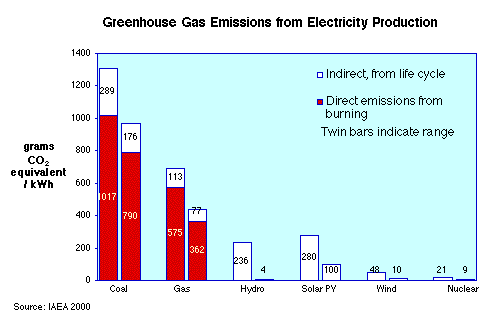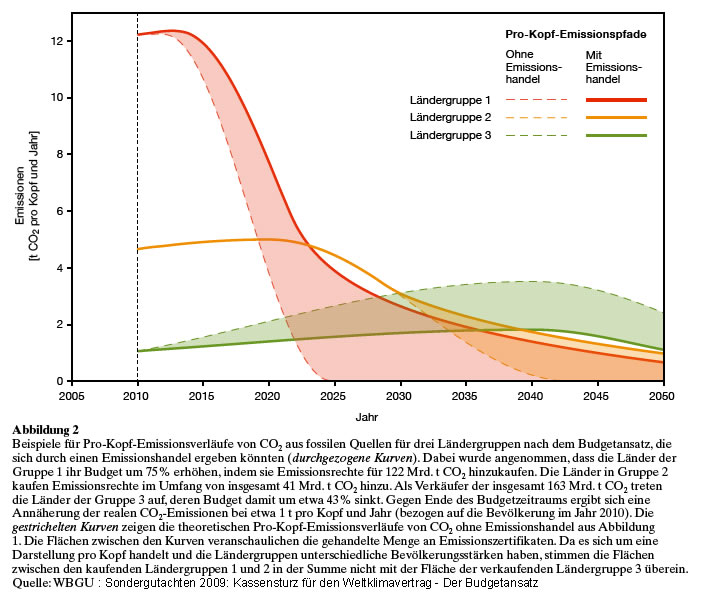Plantagenet wrote:
Why take the chance?
Because a +2K world is impossible, not matter what we do.
For a +4K world we must keep our lignite in the ground and the US has to keep all the shale gas, shale oil, hard coal and tar sands in the ground.
Is the US willing to do that? I doubt it.
Its risky for Germany to be gambling with the climate of the earth by INCREASING their CO2 production by building new COAL-FIRED ELECTRICAL PLANTS when the US and much of the rest of the world are trying to close down coal-fired plants because they are absolutely the biggest CO2 polluters you can get.
I have already shown you the data and graphs. Afair Germany is the only country within the 10 biggest CO2 producers that has reached the Kyoto goals. As long as we do that why do you care, how we do it?
The US not even signed the Kyoto protocol any your emissions have been rising from an already absurdly high staring point.
Germany is a clear example of why the world needs a binding global climate change treaty.
we have tried that for 20 years and I assume that we still would be one of the first for a new one.
We already have a climate policy that aims for a 80-90% CO2 reduction until 2050 and our starting point is currently around 10t CO2e/person*a.
I expect the US to have a 90-95% CO2 reduction from the current level to an equal level with ours up to 2050 and I want to see a plan how you would do that and we need both Americans parties in agreeing on that plan (the German concept is available to the public and 4 out of 5 parties more or less agree on it.
-90-95% CO2 reduction is EASILY doable in the US because you have much better resources of wind, solar, wind and biomass power in your country than we do have.
If you want to use nuclear, feel free to do so, too.
Even this is not enough for a +2K world, but it could be enough to avoid a +4K world if other countries would also try their best.
The German climate policy is not good and I assume that there are better plans out there (i.e. Sweden), but we are miles ahead of the US. Most countries are miles ahead of the US, even China has a much better climate policy.
Germany (like China) thinks it is so rich and powerful now it can get away with going rogue and building new coal-fired electrical plants and burning coal to save a few pfennigs while polluting the atmosphere and ruining the climate for everyone else on the planet.
I wonder if your really believe that. So far you have non climate policy at all (except maybe for cars, but you are starting at an absurdly high level reagrding CO2 emissions from traffic anyway) or did I miss something?
The last thing I remember about international climate policy was the US and China trying to force the EU to stop a planned CO2 tax on air travel.
THIS is US climate policy.
The only thing why you switch some of your coal fired power plants to gas is, because gas is cheaper _now_. If it gets more expensive again in some years you will switch back again.
So in the end fracking gas will not reduce CO2 emissions, but just add even more to the atmosphere. Fracking gas/oil will make thermogeddon a possible threat, in combination with other unconventional fossil fuels.
The only climate friendly thing about fracking gas you could do would be to leave it in the ground.
On the other side Germany had 61% wind and solar power during 16th June. Of course only for a short moment, but still quite an achievement for an industrial country (btw, many "experts" said that having more than 50% wind+sun in the grid is impossible)
I doubt that we will switch of these renewable power plants and we have the political will to get up to 90% renewables in the electricity sector, independent from any global climate agenda.
PS: Thanks for the very helpful picture on the topic...
You do not need to agree with me, you do not need to believe me.
I just tell you my viewpoint that is quite similar to many people here who do make climate policy. We tried quite hard during the last 20 years to get an international climate policy, we are the only one left from the 10 big Co2 emitters that reached the Kyoto targets (with the help of the collapse of the East German economy, to be fair, but we also had significant improvements after 1995, too)
Germany invested around 100 billion US$ in photovoltaic and wind power, when both have been expensive and triggered (together with other countries) a market that made those technologies an economical option for other countries.
new Photovoltaic is now cheaper than new nuclear in most countries.
We still have our own and very ambitios climate targets for 2020, 2030 and 2050 and are willing to improve them, if the rest of thee world does, too...
I'm sure that we also would be willing to make a fair share of a remaining CO2 cap and we are willing to pay other (poor) countries for their CO2 share, no matter the cost. (A fair share would be in my opinion to give every current living person the same amount of CO2. So for those with high population growths this is their problem, for those with high CO2 consumption now, this is also their problem)
At least I'm willing to do so.
But of course only when other countries will agree.
Do you think that an American will pay lets say 70US$ per t CO2 to India? That's more than 1,000US$/capita and year.
I am willing to do that and I would expect CO2 prices in that range, maybe even higher if we would try to keep temperatures below +4K.
But policy has to accept realities and the reality is, that the US has not interest in climate policy and so the world has no chnace for a climate policy. As simple as that.
So we have to prepare our country not only for peak oil, but also for a hotter world. We would be stupid if we would close our eyes for both problems or believe in a "magic solution" or "god will save us" nonsense...















